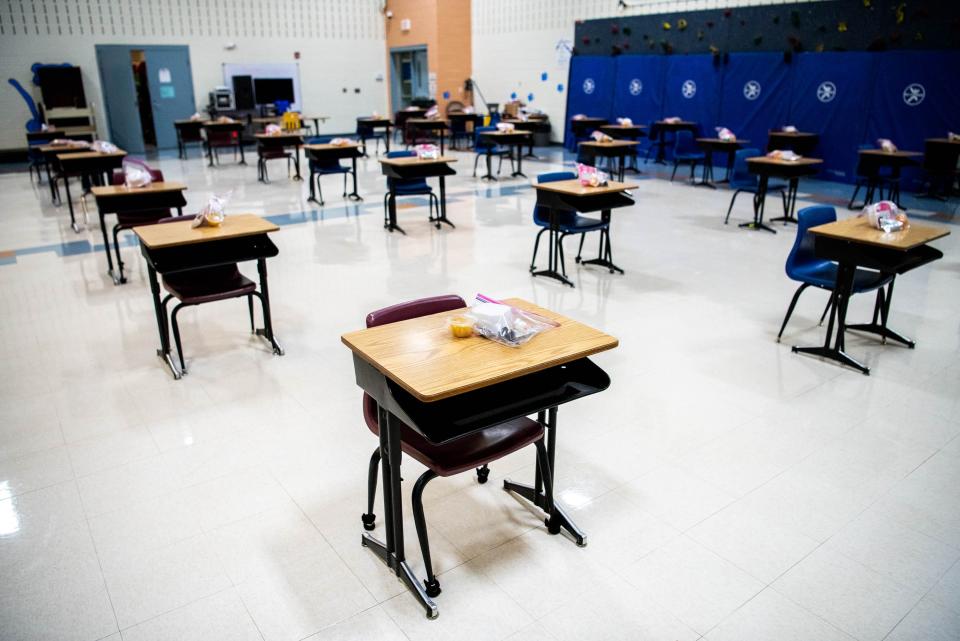Students lost months of learning due to COVID school closures. What can parents do to help?
For all the talk of life getting back to normal, school hasn't been the same in years.
Three years since the coronavirus pandemic shuttered schools across the U.S., students have experienced one disruption after another: a COVID outbreak here, a flood there, an ice storm, hurricane, or tornado over there. Community events, school-related violence, even water system breakdowns have disrupted class.
New research published Monday in the journal Nature Human Behaviour concludes that the combination of pandemic-related school closures, the shift to virtual learning where it was even an option and the mental health toll on students set kids back by about a third of a year. The analysis concluded as much based on a review of 42 other studies conducted in 15 countries. Nearly all the world's student population experienced school closures because of COVID.
That probably sounds familiar, but despite billions of dollars pouring into schools to make up for lost time, the gap hasn't closed substantially over time – though it hasn't gotten worse, either. Researchers concluded students' math skills took a bigger dive than reading. Meanwhile, kids from lower-income families, and countries, fared the worst.
"We don’t see a clear pattern for this deficit being recovered," said lead author Bastian A. Betthäuser, of Sciences Po in Paris. "That’s certainly concerning."
Reading and math scores fell during the pandemic. How did your state fare?
'A worrisome trend': ACT scores continue to decline, dropping to lowest levels in 30 years
What is 'learning loss'?
Educators have for decades known that students backslide on math and reading skills during summer break. Only a sliver of kids in U.S. schools attend classes year round.
One solution has been high-quality summer school to keep kids reading and doing math.
More school districts are turning to summer school offerings since the pandemic, RAND Corporation found in a survey. Kids have to attend regularly and the programs need to last long enough to make a difference, however, and many school systems aren't considering what really works when they set up their summer classes.

"Kids don’t benefit from after school or tutoring or anything if they don’t show up," said Phyllis Jordan of FutureEd, a think tank based at Georgetown University.
In Los Angeles recently, where extra optional days were added to the school year during winter break, fewer than 10% of students in the nation's second-largest district showed up.
(To be sure, there are plenty of people who are skeptical about learning loss.)
US students lost decades of progress in math, reading: Could this strategy be the solution?
What role do parents play in catching kids up?
While schools and teachers were showered with blame for shifting to virtual classes during the pandemic for months on end, and off-and-on for a while after that, now it may be on parents to realize that the kids are not all right.
That means getting them to summer school, academic programs after school and added school days and not assuming good grades mean students don't have room for improvement.
“There are these national surveys that are suggesting that parents think things are more or less back on track,” researcher Dan Goldhaber recently told the education outlet The 74. “And I think there’s good evidence that kids are not yet back on track. So we’ve got what I would say is an ‘urgency gap.’”
There's no time to waste, Betthäuser said.
"I definitely think there’s hope for policies to recover learning. We just have to do it," he said.
If the U.S. and other countries don't invest in the right solutions, fast, and make sure students participate, he said, "I’m not sure whether we are going to be able to completely catch up these learning deficits that we’re seeing.
"This is potentially going to be a big problem for this generation."
This article originally appeared on USA TODAY: COVID school closures set children back by months of learning: Study

